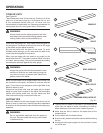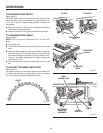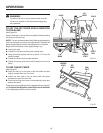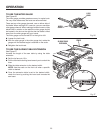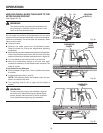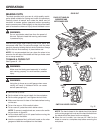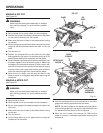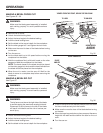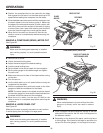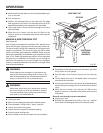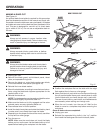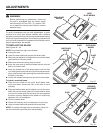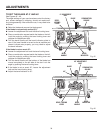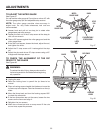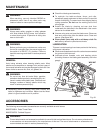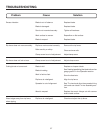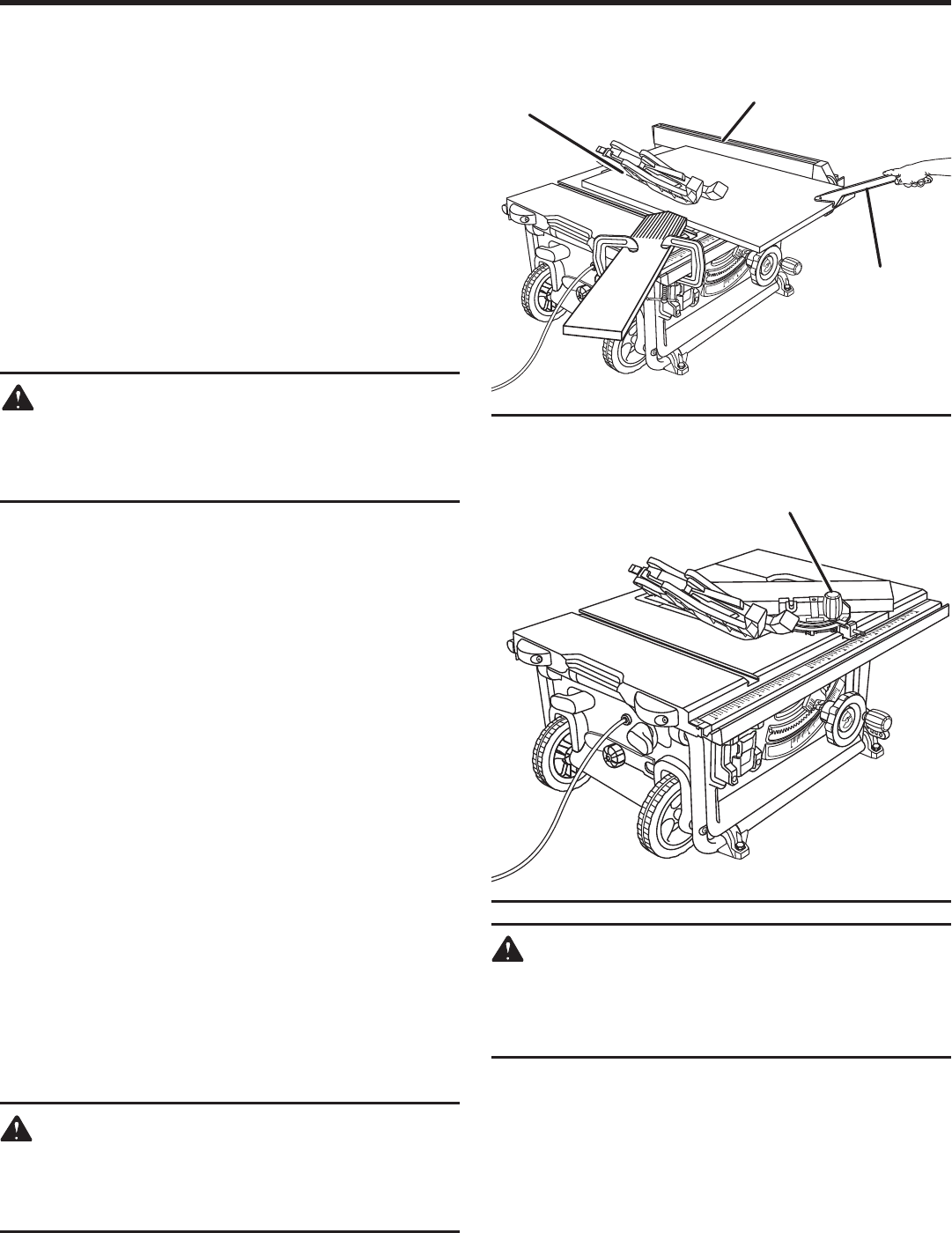
30
OPERATION
BEVEL RIP CUT
RIP FENCE
PUSH
STICK
BLADE
ANGLED
PLACE LEFT HAND ON
MITER GAUGE HERE
Position the workpiece flat on the table with the edge
flush against the rip fence. Let the blade build up to full
speed before feeding the workpiece into the blade.
Once the blade has made contact with the workpiece, use
the hand closest to the rip fence to guide it. Make sure
the edge of the workpiece remains in solid contact with
both the rip fence and the surface of the table. If ripping
a narrow piece, use a push stick and/or push blocks to
move the piece through the cut and past the blade.
When the cut is made, turn the saw off. Wait for the
blade to come to a complete stop before removing the
workpiece.
MAKING A COMPOUND (BEVEL) MITER CUT
See Figure 38.
WARNING:
Make sure the blade guard assembly is installed
and working properly to avoid possible serious
injury.
Remove the rip fence.
Unlock the bevel locking lever.
Adjust the bevel angle to the desired setting.
Lock the bevel locking lever.
Set the blade to the correct depth for the workpiece.
Set the miter gauge to the desired angle and tighten
the lock knob.
Make sure the wood is clear of the blade before turning
on the saw.
Turn the saw on.
Let the blade build up to full speed before moving the
workpiece into the blade.
Hold the workpiece firmly with both hands on the miter
gauge and feed the workpiece into the blade.
NOTE: The hand closest to the blade should be placed
on the miter gauge lock knob and the hand farthest from
the blade should be placed on the workpiece.
When the cut is made, turn the saw off. Wait for the
blade to come to a complete stop before removing the
workpiece.
MAKING A LARGE PANEL CUT
See Figure 39.
Make sure the saw is properly secured to a work surface
to avoid tipping from the weight of a large panel.
WARNING:
Make sure the blade guard assembly is installed
and working properly to avoid possible serious
injury.
COMPOUND (BEVEL) MITER CUT
WARNING:
Never make freehand cuts (cuts without the miter
gauge or rip fence), which can result in serious
injury.
Place a support the same height as the top of the saw
table behind the saw for the cut work. Add supports to
the sides as needed.
Depending on the shape of the panel, use the rip fence
or miter gauge. If the panel is too large to use either the
rip fence or the miter gauge, it is too large for this saw.
Fig. 37
Fig. 38



